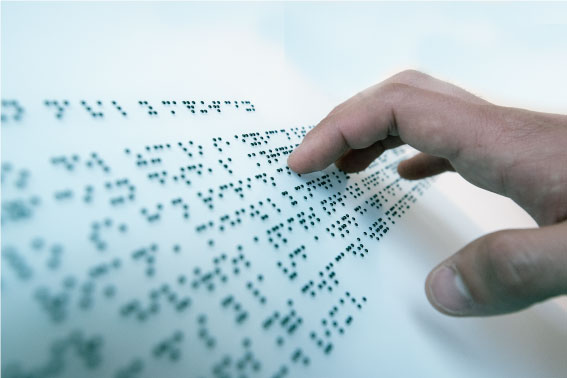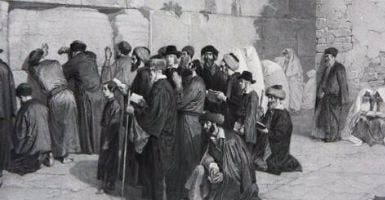In the absence of the Beis haMikdash, there is little practical relevance to the Halachos of Mumin (defects or deformities) that disqualify Kohanim from performing the Avoda. However, during the eras of the Mishkan and Batei Mikdash, these Halachos were extremely important and we fervently hope to soon merit observing these Halachos again. In that light, the next two essays will examine the subject, including 00a fascinating look at whether certain illnesses render a Kohen a “Ba’al Mum”.
There is, however, one practical modern application of these Halachos, namely, the Mitzva of “v’Kidashto” – honoring Kohanim and giving them precedence in a wide range of circumstances, such as receiving an Aliya. We will examine whether this Mitzva applies to a Kohen who is a Ba’al Mum.
The Pri Megadim (O.C. 135, Mishbetzos Zahav 8) addresses this question: )
I speculated whether a Kohen who is a Petzua Daka or Kerus Shafcha (crushed testicles or injured male member) retains his Kedusha and reads first from the Torah or not. [I] also [speculated about] a Kohen who is a Ba’al Mum or a minor…
He cites the Magen Avraham (282:6) who rules that there is no obligation of v’Kidashto for a Kohen who is a Katan. This is because a minor cannot perform the Avoda in the Beis haMikdash and the Torah clearly links the Mitzva of v’Kidashto to the performance of the Avoda: “And you shall sanctify him for he offers the food of your God” (Vayikra 21:8).[1] The Pri Megadim argues that the same should apply to a Kohen who is a Ba’al Mum. Since he cannot perform the Avoda there should be no Mitzva to honor him.
However, he then questions this comparison. Unlike Ketanim, Ba’alei Mumin do receive a portion of the Korbanos (Zevachim 98b). If so, they do fulfill the notion of “offering the food of your God” in some sense, and should qualify for v’Kidashto. Furthermore, although Ketanim do not receive a share in the Korbanos they are permitted to eat them. If so, we should also consider them to be “offering the food of your God”, and they should likewise qualify for v’Kidashto.[2]
Ultimately, the Pri Megadim does not endorse a distinction between a minor and a Ba’al Mum in this regard. He therefore concludes that the Mitzva of v’Kidashto does not apply to a Ba’al Mum just as the Magen Avraham concluded regarding a minor.
However, this conclusion is far from simple. R’ Akiva Eiger (Gilyon Shulchan Aruch ibid.) challenges the Magen Avraham’s ruling from the Sifra that states (Vayikra ibid. 6): “v’Hayu Kodesh – And they shall be holy – this includes Ba’alei Mumin”. The Sefer haChinuch (Mitzva 269) derives from the Sifra that there is an obligation to honor a Kohen who is a Ba’al Mum:
… “v’Hayu Kodesh – this includes Ba’alei Mumin” – thus we should not claim that since this [blemished Kohen] is not fit to offer the food of your God, why should we give him precedence and honor him? That is why they said, “v’Hayu Kodesh – in other words, all of the seed [of the Kohanim] is distinguished – both unblemished and blemished ones.
It is interesting that R’ Akiva Eger questions the Magen Avraham’s ruling about Ketanim from a Sifra and the Sefer haChinuch that discuss Ba’alei Mumin. Evidently, he made the same comparison as the Pri Megadim, namely, that since the Magen Avraham links v’Kidashto to the possibility of performing the Avoda, there should be no difference between Ketanim and Ba’alei Mumin.
However, as explained above, the Pri Megadim himself questions the comparison given that a Ba’al Mum receives a portion of the Korbanos unlike a Katan (even though a Katan is permitted to eat the Korbanos). Though the Pri Megadim ultimately rejects that distinction and maintains the comparison, perhaps the Magen Avraham held that it is indeed flawed. This would resolve R’ Akiva Eiger’s question: The Mitzva of v’Kidashto does apply to a Ba’al Mum, as stated explicitly by the Sifra, however, the same is not true of a Katan since he does not receive a portion of the Korbanos.
We could suggest an additional difference between a Katan and a Ba’al Mum. First we will pose another question: Why does the Torah state both “v’Kidashto” and “v’Hayu Kodesh”? Surely, as stated by the Sefer haChinuch, they convey the same command and should therefore be redundant!
The answer may be that a Ba’al Mum and a Katan each have a unique reason to be included in v’Kidashto and a unique reason to be excluded. A Ba’al Mum is essentially a Kohen who is fit to serve in the Beis haMikdash – there is nothing lacking in the “Cheftza” of his status as Kohen. His only disqualification is that he has a Mum – a physical defect which constitutes a Psul. On the other hand, this disqualification is absolute and will not change.[3]
A Katan, on the one hand, is destined to serve in the Beis haMikdash when he reaches the age of majority. On the other hand, at this time he is inherently unfit to serve since he is not yet of age and has not reached the full status of “Kohen”.
If so, we may suggest that the Torah gives two commands to Yisraelim to honor the Kohanim; one that honors a Kohen’s dedication to the Avoda, akin to the honor due to Hashem and his Mikdash, and the other that honors a Kohen’s inherent, honored status. One could contend that the first command only applies to somebody who is practically able to serve in the Beis haMikdash, whereas the second command applies to all Kohanim.
This may be the intent of the Sifra. Though the basic obligation to honor a Kohen stems from the commands of “v’Kidashto”, it only teaches us to honor somebody who “offers the bread of Hashem”, as stated in that Pasuk. It does not teach us to honor a Kohen simply for his inherent status. For this reason the Torah reiterates “v’Hayu Kodesh” – they are inherently holy and deserving of honor regardless of their ability to perform the Avoda.
However, this does not mean to say that the two commands – “v’Kidashto” and “v’Hayu Kodesh” are completely separate. It seems logical to assume that the command of “v’Hayu Kodesh” is qualified by the parameter of “offering the food of your God”. We may suggest that “v’Hayu Kodesh” teaches us that in order to qualify for honor, a Kohen does not need to actually be permitted to serve in the Beis haMikdash, but the Pasuk of v’Kidashto teaches that he does need the inherent status that would qualify him to serve (absent an “exogenous” defect or deformity). If the Kohen has a holy status that essentially would qualify him to serve, he is worthy of honor.
We may use this understanding of the Pesukim to explain the difference between a Katan and a Ba’al Mum. A Katan does not yet have the status of Kohen that makes him essentially able to serve, thus there is no Mitzva to honor him. However, a Ba’al Mum does essentially have holy status – it is only a Psul that prevents him from serving. He is thus worthy of honor. This resolves R’ Akiva Eiger’s question on the Magen Avraham.
The Maharit (Shu”t 1:145) discusses whether a Kohen Katan should read from the Torah first. His argument against it is that “we afford honor to Kohanim and a Katan is not someone to whom honor can be afforded”. This implies that it is simply not possible to afford honor to a Katan – not that a Katan is merely not worthy of honor. If so there is another distinction between a Katan and a Ba’al Mum.[4]
At any rate, the Halacha seems to be that honor is due to a Kohen who is a Ba’al Mum. This is reflected by Tosfos in Menachos (109b) who state that a Ba’al Mum may be called to the Torah first, and it is practically an explicit Halacha in Shulchan Aruch (135:13): “If the only Kohen is blind or is not fluent – see Siman 139”.
The reference to Siman 139 is to a ruling that one should not call a person to the Torah if he is not fluent in the reading unless he is the only Kohen or Levi present. If he is the only Kohen or Levi and he is able to repeat the words when somebody recites them to him, he may receive an Aliya. In Se’if 3, the Shulchan Aruch explains that this is why a blind person cannot receive an Aliya – he cannot read the words from the Torah, even if somebody says them to him.
These rulings imply that the only issue with a blind Kohen receiving the first Aliya is that he is unable to read the text. The fact that he is a Ba’al Mum does not disqualify him. Therefore, those with other Mumin which do not prevent them from reading from the Torah, should certainly be honored with receiving the first Aliya. (This proof is also cited by the Pri Megadim ibid.)
Next week’s essay will discuss specific defects and deformities and whether they would cause a Kohen to be considered a Ba’al Mum.
[1] One could have interpreted the Pasuk as describing the eminence of all Kohanim. However, the Magen Avraham appears to hold that the Pasuk links the Mitzva of v’Kidashto of each individual Kohen to his actual performance of the Avoda.
[2] [Editor’s note: The Pri Megadim is challenging his original suggestion to distinguish between a Katan and a Ba’al Mum. As we will see in the following paragraph, he seems to accept the premise of the Magen Avraham that the qualification of “for he offers the food of your God” refers to actual performance of the Avoda, and therefore neither a Katan nor a Ba’al Mum would be subject to v’Kidashto.]
[3] [Editor’s note: This obviously would only be true of a Ba’al Mum Kavua – one whose defect is permanent. Discussion of whether v’Kidashto applies to a Ba’al Mum Ovair (whose defect is temporary) is beyond the scope of this essay.]
[4] In fact, the Maharit’s conclusion is that a Kohen who is a Katan can be afforded honor since honor was granted to all of the seed of Aaron, adult and child alike. The Kesav Sofer (O.C. 15) maintains that the Maharit’s intent is that even a child Kohen will serve in the Beis haMikdash in the future, thus he is deserving of honor now. This would not apply to a Ba’al Mum. However, the Kesav Sofer does not explain how he infers this from the Maharit’s words; if he refers to the Teshuva cited here, this is not alluded to in the Maharit’s comments at all – if anything the opposite is implied.















Add comment